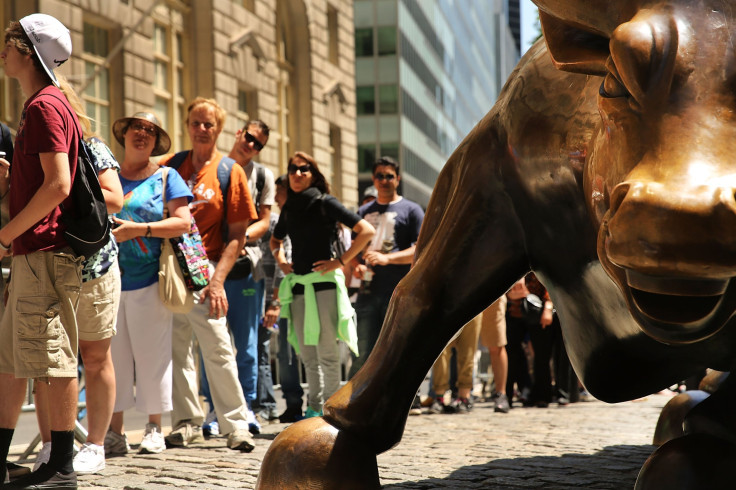Dow Jones Industrial Average Gains Ahead Of European Central Bank Policy Meeting

This story was updated at 4:20 p.m. EST.
U.S. stocks followed European markets higher Wednesday ahead of the European Central Bank’s next policy meeting, which is expected to announce further stimulus measures that would give a boost to equities. Commodity prices, meanwhile, leveled out a day after mining stocks were hammered over heightened concern about China’s recent weak trade data.
“Mario Draghi’s credibility will be seriously damaged if the ECB does not opt for further monetary easing this week,” Jeremy Beckwith, director of manager research at Morningstar UK, told CNBC, referring to the ECB president. “The last time he gave strong hints that action was imminent was ahead of December’s meeting, when he was unable to persuade the ECB to go along with him.”
On the seventh anniversary of the start of a U.S. bull market, the Dow Jones Industrial Average (INDEXDJX:.DJI) gained 36.26 points, or 0.21 percent, to 17,000 at the closing bell Wednesday. The broader Standard & Poor’s 500 index (INDEXSP:.INX) rose 10 points, or 0.51 percent, to 1,989, while the Nasdaq composite (INDEXNASDAQ:.IXIC) advanced 25.55 points, or 0.55 percent, to 4,674.
Nine out of the 10 S&P 500 sectors closed up Wednesday, led by energy stocks. Telecom shares closed down. Chevron Corp. (NYSE:CVX) led Dow gains while Nike Inc. (NYSE:NKE) led declines.
Oil prices were up Wednesday, with Brent crude returning above $40 per barrel after the U.S. Energy Information Administration’s weekly report on U.S. inventories said crude stockpiles rose by 3.9 million barrels last week. The number was in line with economists’ forecasts from a Reuters poll. Gasoline inventories fell by 4.5 million barrels, more than the expected 1.4 million barrels. Oil prices ended a six-day rally on Tuesday that pushed prices to their highest levels this year.
West Texas Intermediate crude, the major American benchmark, gained 3.37 percent to $37.73 per barrel for April delivery on the New York Mercantile Exchange. Brent crude, the global benchmark, rose 2.85 percent to $40.78 for May delivery on the London ICE Futures Exchange.
The benchmark U.S. 10-year Treasury rose to 1.9 percent compared with Tuesday’s settlement price of 1.85 percent. The bond yield typically rises when investors are more confident about the markets and falls when concerns flare. Gold, another so-called safe-harbor investment, dropped 0.87 percent to $1,251.90. Gold prices tend to rise as confidence in the markets falls. The price of the precious metal hit a 13-month high earlier this week.
Most Asian markets closed lower Wednesday after reacting to Tuesday’s commodities rout and weak China trade data.
China’s CSI 300 Index of the mainland’s largest equities fell 1.15 percent to 3,072 by the closing bell in Shanghai. Hong Kong’s Hang Seng lost 0.08 percent to 19,996. Japan’s Nikkei dropped 0.84 percent to 16,642. Australia’s S&P/ASX 200 rose 0.96 percent to 5,157, while South Korea’s main Kospi index went up 0.35 percent to 1,953.
European shares were headed higher Wednesday afternoon ahead of Thursday’s ECB policy announcement. Bargain-seeking investors bought on Tuesday’s major sell-off of commodity-related stocks. The broad Stoxx Europe 600 index rose 1.11 percent to 341.15. The Paris-based CAC 40 gained 0.49 percent to 4,426, while London’s FTSE rose 0.34 percent to 6,146. Frankfurt’s DAX was up 0.31 percent to 9,723.
© Copyright IBTimes 2024. All rights reserved.












